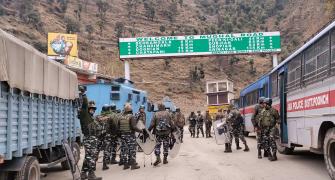In a letter dated November 30, the PMO asked the commerce ministry to prepare a detailed note on the venture, in the anticipation that it would come up for discussion in Parliament.
Responding to it on December 1, the department of industrial policy and promotion under the commerce ministry gave a clean chit to the proposal.
Top Indian retailers, including new entrant Reliance Industries, have requested the government to provide a level playing field and pointed out that there were grey areas in its policy that could be exploited.
The DIPP told the PMO that, on the face of it, the Bharti proposal conformed to government policy. Its letter said, "Based on the position conveyed by Bharti Enterprises, the proposed joint venture with Wal-Mart appears to be for setting up distribution centres, cold and ambient warehousing and transportation of various products including fruit, vegetables, dairy and other perishable... Wal-Mart would be a supplier to Bharti's retail venture and other smaller retail outlets, which is in accordance with the policy for FDI in wholesale cash and carry, business-to-business trading and storage and warehousing services."
Bharti had stated before the DIPP that it needed technology and know-how in logistics, supply chain management and cold chains. It also needed to link up with the supplier and producer communities, in which the tie-up with Wal-Mart would be of help.
Under the present policy, FDI in retail is restricted to single-brand ventures, with a ceiling of 51 per cent. However, FDI up to 100 per cent is allowed in wholesale cash and carry, which involves selling to retailers and distributors but not the eventual consumers.
FDI up to 100 per cent under the automatic route is allowed in warehousing services, including warehousing and refrigeration of agricultural products.








